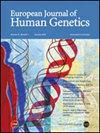Challenges in interpreting Mendelian randomization studies with a disease as the exposure: Using COVID-19 liability studies as an exemplar
IF 3.7
2区 生物学
Q2 BIOCHEMISTRY & MOLECULAR BIOLOGY
引用次数: 0
Abstract
Mendelian randomization (MR) studies using diseases as exposures are increasingly prevalent although any observed associations do not necessarily imply effect of diseases. To illustrate this challenge, we conducted a systematic review of MR studies focusing on COVID-19 consequence. We hypothesized if outcome genome-wide association studies (GWAS) were conducted before COVID-19 pandemic in late 2019, any observed associations in these studies were unlikely to be driven by COVID-19. We systematically searched PubMed, EMBASE, and MEDLINE for all MR studies published between 1 January 2019 and 20 May 2023. Inclusion criteria included MR studies which used COVID-19 as the exposure and designed to assess COVID-19’s impact on health outcomes. We extracted relevant information, such as result interpretation and relevance assumption assessment. This review was registered at PROSPERO (CRD42023421079). Amongst 57 included studies, 45 studies used outcome GWAS published prior to 2019 whilst the remaining studies likely used outcome GWAS containing data collected before 2019. Relevance assumption was assessed mainly by p values. A total of 35 studies showed an association of COVID-19 liability with health outcomes. Regardless of the results, 45 studies attributed these as evidence (or lack of evidence) of COVID-19 consequence. In MR studies using disease liability as exposure, relevance assumption should consider the prevalence of the disease in the outcome GWAS in the context of 2 sample Mendelian randomization study rather than p values/F-statistic alone. Even when these are verified, these studies likely suffered from pleiotropy, making corresponding interpretation as effect of disease challenging.

以疾病为暴露的孟德尔随机化研究的解释挑战:以COVID-19责任研究为例
使用疾病作为暴露的孟德尔随机化(MR)研究越来越普遍,尽管任何观察到的关联并不一定意味着疾病的影响。为了说明这一挑战,我们对以COVID-19后果为重点的MR研究进行了系统回顾。我们假设,如果结果全基因组关联研究(GWAS)是在2019年底COVID-19大流行之前进行的,那么这些研究中观察到的任何关联都不太可能是由COVID-19驱动的。我们系统地检索了PubMed、EMBASE和MEDLINE,检索了2019年1月1日至2023年5月20日期间发表的所有MR研究。纳入标准包括以COVID-19为暴露源的MR研究,旨在评估COVID-19对健康结果的影响。我们提取相关信息,如结果解释和相关性假设评估。本综述在PROSPERO注册(CRD42023421079)。在纳入的57项研究中,45项研究使用了2019年之前发表的结果GWAS,而其余研究可能使用了包含2019年之前收集的数据的结果GWAS。相关性假设主要通过p值评估。共有35项研究表明,COVID-19负债与健康结果存在关联。无论结果如何,有45项研究将这些结果归因于COVID-19后果的证据(或缺乏证据)。在使用疾病倾向作为暴露的MR研究中,相关性假设应考虑两样本孟德尔随机化研究背景下GWAS结果中疾病的患病率,而不是单独考虑p值/ f统计量。即使这些研究得到证实,这些研究也可能存在多效性,这使得对疾病影响的相应解释具有挑战性。
本文章由计算机程序翻译,如有差异,请以英文原文为准。
求助全文
约1分钟内获得全文
求助全文
来源期刊

European Journal of Human Genetics
生物-生化与分子生物学
CiteScore
9.90
自引率
5.80%
发文量
216
审稿时长
2 months
期刊介绍:
The European Journal of Human Genetics is the official journal of the European Society of Human Genetics, publishing high-quality, original research papers, short reports and reviews in the rapidly expanding field of human genetics and genomics. It covers molecular, clinical and cytogenetics, interfacing between advanced biomedical research and the clinician, and bridging the great diversity of facilities, resources and viewpoints in the genetics community.
Key areas include:
-Monogenic and multifactorial disorders
-Development and malformation
-Hereditary cancer
-Medical Genomics
-Gene mapping and functional studies
-Genotype-phenotype correlations
-Genetic variation and genome diversity
-Statistical and computational genetics
-Bioinformatics
-Advances in diagnostics
-Therapy and prevention
-Animal models
-Genetic services
-Community genetics
 求助内容:
求助内容: 应助结果提醒方式:
应助结果提醒方式:


